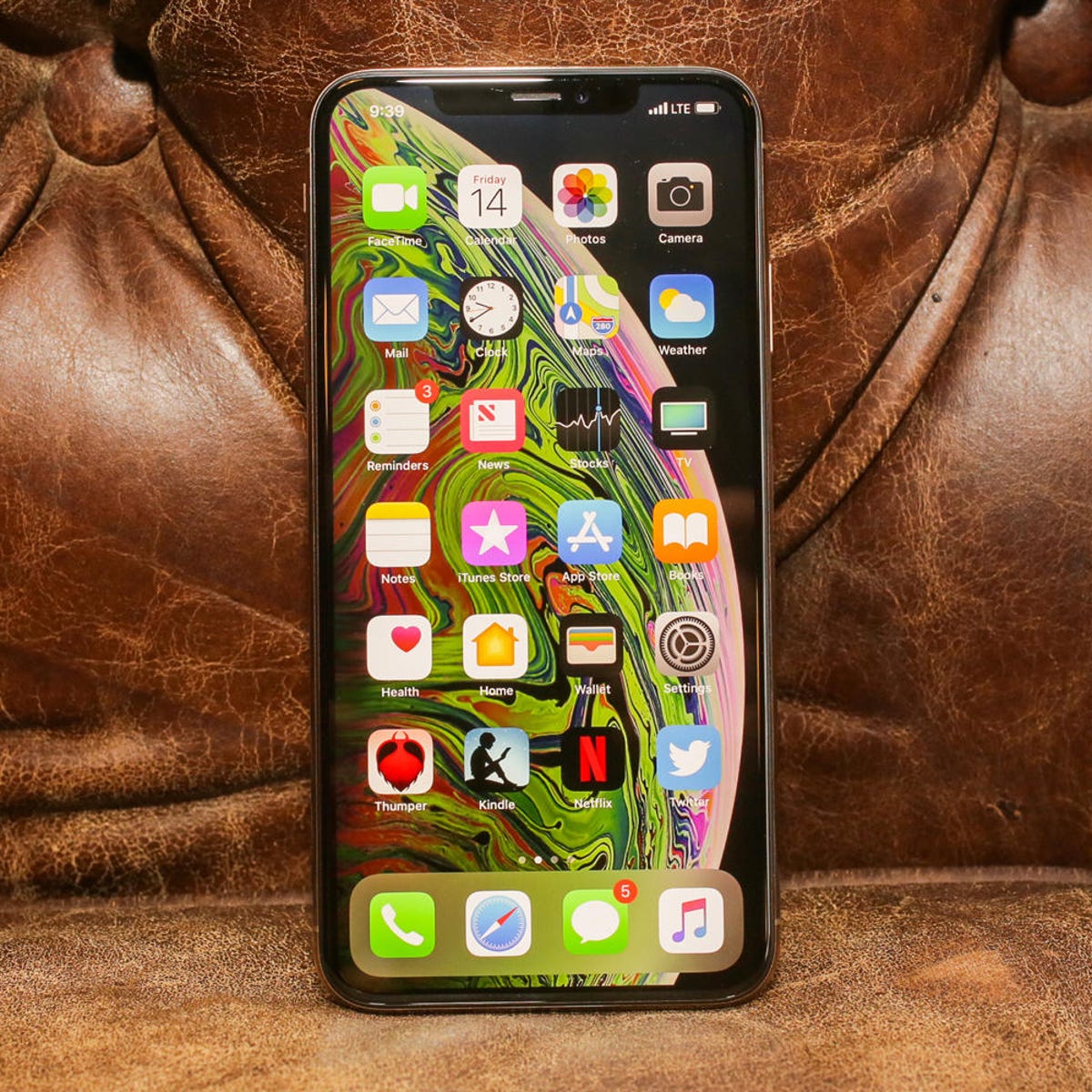The iPhone XS Max is undoubtedly a powerful and feature-packed smartphone. However, some users have reported experiencing overheating issues with this device. If you’re one of them, you may be wondering why your iPhone XS Max is getting hot and what you can do to resolve this issue. In this article, we will explore the potential causes of iPhone XS Max overheating and offer some solutions to help you keep your device cool.
One of the main reasons why your iPhone XS Max may be getting hot is a faulty or damaged battery. The battery is responsible for powering your device and can generate heat when it is overworked or not functioning properly. If you suspect that your battery is the culprit, you may need to have it replaced by a professional technician.
Another common cause of iPhone XS Max overheating is having too many apps running simultaneously. Your iPhone is a multitasking device, capable of running multiple processes at once. However, running too many apps can put a strain on the CPU, causing it to work harder and generate excess heat. To resolve this issue, try closing unnecessary apps or clearing the app cache to free up CPU resources.
Additionally, using your iPhone XS Max in direct sunlight or in a hot environment can also cause it to overheat. The combination of external heat and the internal heat generated by the device can lead to overheating. To prevent this, avoid using your iPhone in direct sunlight for extended periods and keep it in a cool and well-ventilated area.
Water damage can also be a potential cause of iPhone XS Max overheating. If your device has come into contact with water or other liquids, it can damage the internal components, including the battery and CPU. In such cases, it’s important to have your device inspected and repaired by a professional as soon as possible.
If none of the above solutions resolve the overheating issue, it’s possible that a hardware problem is causing the problem. Over time, the physical components of your iPhone can become damaged or worn out, leading to overheating. In this case, it’s best to seek the assistance of an authorized service center or Apple store for further diagnosis and repair.
An overheating iPhone XS Max can be a frustrating issue to deal with. However, by understanding the potential causes and implementing the suggested solutions, you can help keep your device cool and prevent any further damage. Remember to take care of your iPhone XS Max, avoid excessive app usage, protect it from direct sunlight, and seek professional help if needed.

Why is Your iPhone XS Max Getting So Hot?
The iPhone XS Max can get hot due to several factors. Here are some possible reasons:
1. Heavy usage: When you use your iPhone for resource-intensive tasks like gaming, video streaming, or running multiple apps simultaneously, it can generate more heat. The processor and graphics unit work harder, causing the device to heat up.
2. Software updates: Sometimes, software updates can cause your iPhone to run processes in the background, leading to increased heat generation. This is especially common after major software updates.
3. Background app refresh: If you have many apps running in the background and constantly refreshing their content, it can put a strain on your iPhone’s resources and cause it to heat up.
4. Poor ventilation: If your iPhone is covered by a thick case or if you place it in an area with limited airflow, it can trap the heat and cause the device to overheat.
5. Faulty battery: An old or damaged battery can generate excess heat. If your iPhone’s battery health is degraded, it may struggle to handle power demands efficiently, resulting in overheating.
6. Charging: When you charge your iPhone, it can naturally get warm. However, if you use a low-quality or incompatible charger, it can cause excessive heat generation.
7. Environmental factors: Direct sunlight or exposure to high temperatures can also cause your iPhone to overheat. It is recommended to avoid leaving your device in hot environments for prolonged periods.
To address the overheating issue, you can try the following:
– Reduce usage: Limit resource-intensive tasks and close unnecessary apps running in the background.
– Remove the case: Take off any thick or insulating case to allow better airflow around the device.
– Update software: Keep your iPhone’s software up to date to ensure it runs efficiently and addresses any software-related issues.
– Check battery health: If you suspect a faulty battery, you can check the battery health in the Settings app under Battery. If necessary, consider getting the battery replaced by an authorized service provider.
– Use an original charger: Always use an Apple-approved charger and cable to avoid any compatibility issues and prevent excessive heat generation.
If the overheating problem persists or if you notice any other unusual behavior, it is advisable to contact Apple Support or visit an authorized service center for further assistance.
Why is Your iPhone XS-Pro Max Overheating?
There are several possible reasons why your iPhone XS Pro Max may be overheating. Here are some of the common culprits:
1. Intensive Usage: If you are running resource-intensive apps or games for an extended period, it can put a strain on the CPU and other components, leading to overheating.
2. Background Processes: Certain apps or processes running in the background may be consuming excessive CPU cycles, causing the device to heat up. Check for any apps that are constantly active or performing tasks in the background.
3. Software Updates: Sometimes, software updates can introduce bugs or compatibility issues that can lead to increased CPU usage and subsequent overheating. Ensure that your device is running the latest software version, as updates often include bug fixes and performance improvements.
4. Poor Ventilation: If your iPhone is enclosed in a non-breathable case or if there is an obstruction around the device’s vents, it can hinder proper airflow and result in overheating. Remove any coverings or cases and ensure that the device has adequate ventilation.
5. Battery Issues: A faulty or degraded battery can cause excessive heat generation. If your iPhone’s battery health is significantly degraded, it may struggle to provide consistent power, leading to overheating.
6. Malware or Rogue Apps: Malicious software or apps can sometimes run in the background without your knowledge, consuming resources and causing your device to heat up. Run a malware scan and check for any suspicious or unnecessary apps that may be causing the issue.
To address the overheating problem, you can try the following steps:
– Close resource-intensive apps when not in use.
– Restart your iPhone to clear any temporary glitches or excessive background processes.
– Update your device’s software to the latest version.
– Remove any non-breathable cases or coverings.
– Avoid using your device while it is charging.
– If the issue persists, consider contacting Apple Support or visiting an authorized service center for further assistance.
Remember, if your iPhone consistently overheats and the issue is not resolved, it is important to seek professional help as it may indicate a hardware problem that needs to be addressed.
Does The iPhone XS Have Overheating Problems?
The iPhone XS has been known to experience overheating issues in some cases. Overheating can occur due to various factors, including heavy usage, running resource-intensive apps, or prolonged exposure to direct sunlight. It is important to note that not all iPhone XS devices will encounter overheating problems, as it can vary from device to device.
Here are some reasons why the iPhone XS may overheat:
1. Intensive Usage: Running multiple apps or demanding tasks for an extended period can cause the iPhone XS to generate more heat than usual. This can be particularly noticeable when playing graphics-intensive games or using resource-heavy applications.
2. Environmental Factors: Leaving your iPhone XS exposed to direct sunlight or placing it in a hot environment, such as a car on a sunny day, can lead to overheating. This is especially true if the device is already under heavy usage.
3. Software Bugs: Occasionally, software bugs or glitches in the operating system can cause excessive heat generation in the iPhone XS. These issues are usually addressed in subsequent software updates, so keeping your device up to date is important.
4. Battery Issues: A malfunctioning or degraded battery can cause overheating problems. Over time, batteries can lose their capacity to hold a charge effectively, leading to increased heat generation during usage.
5. Hardware Problems: In rare cases, hardware issues such as faulty components or water damage can cause the iPhone XS to overheat. These issues may require professional assistance to diagnose and fix.
To prevent overheating on your iPhone XS, you can take the following measures:
– Avoid exposing your device to direct sunlight or hot environments for extended periods.
– Close unnecessary apps and avoid running resource-intensive tasks simultaneously.
– Keep your device up to date with the latest software version.
– If you notice your iPhone XS consistently overheating, consider contacting Apple Support or visiting an authorized service provider for further assistance.
By following these guidelines and being mindful of how you use and care for your iPhone XS, you can minimize the chances of encountering overheating issues.
Why is Your iPhone Getting Hotter And Hotter?
There can be several reasons why your iPhone is getting hotter and hotter:
1. Intensive usage: If you are running resource-intensive apps or playing graphics-heavy games for an extended period, it can cause your iPhone to heat up. These activities put a strain on the processor and graphics unit, resulting in increased temperature.
2. Background processes: If you have multiple apps running in the background, your iPhone has to work harder to maintain all those processes simultaneously. This increased workload can generate heat.
3. Software updates: Sometimes, after a software update, certain bugs or glitches can cause excessive CPU usage, leading to increased heat generation. In such cases, Apple usually releases patches to address these issues.
4. Poor ventilation: If your iPhone is covered or placed in a warm environment, it hampers the dissipation of heat. Heat can accumulate, causing your iPhone to get hotter.
5. Faulty battery: A faulty or damaged battery can overwork itself, resulting in increased temperature. If your iPhone battery is old and worn out, it may not be able to handle the power demands efficiently.
6. External factors: If you are using your iPhone in direct sunlight or in extremely hot conditions, the ambient temperature can contribute to the heat buildup. It’s advisable to avoid exposing your device to extreme temperatures.
7. Hardware issues: In rare cases, there could be hardware issues, such as a malfunctioning circuit or a faulty component, which may cause your iPhone to get excessively hot. If you suspect hardware problems, it’s best to contact Apple Support for assistance.
To prevent your iPhone from getting excessively hot, you can try the following:
– Close unnecessary apps running in the background.
– Avoid using resource-intensive apps for prolonged periods.
– Keep your iPhone in a well-ventilated area and avoid covering it with cases or other objects that obstruct airflow.
– Update your iPhone’s software regularly to ensure bug fixes and performance improvements.
– If you notice consistent overheating issues, consider getting your iPhone checked by an authorized technician.
Remember, while it’s normal for your iPhone to get slightly warm during heavy usage, persistent and excessive heat can indicate an underlying problem that needs to be addressed.
Conclusion
The iPhone XS Max can experience overheating due to various factors. One common cause is a faulty or damaged battery, which can lead to excessive heat generation. Additionally, having too many apps running simultaneously can put a strain on the phone’s processor, causing it to work harder and generate more heat. Direct exposure to sunlight can also contribute to overheating.
It is important to note that an overheated iPhone XS Max can be a symptom of a hardware issue or even water damage. In such cases, it is recommended to seek professional help for diagnosis and repair.
To prevent overheating, it is advisable to avoid running too many apps at once and to close any unnecessary background processes. Keeping your phone out of direct sunlight and ensuring proper ventilation can also help in preventing overheating. Additionally, regularly checking and maintaining the health of your battery can play a significant role in mitigating overheating issues.
If you continue to experience overheating problems despite taking these precautions, it may be necessary to consult with an authorized service provider to address any underlying hardware issues.








